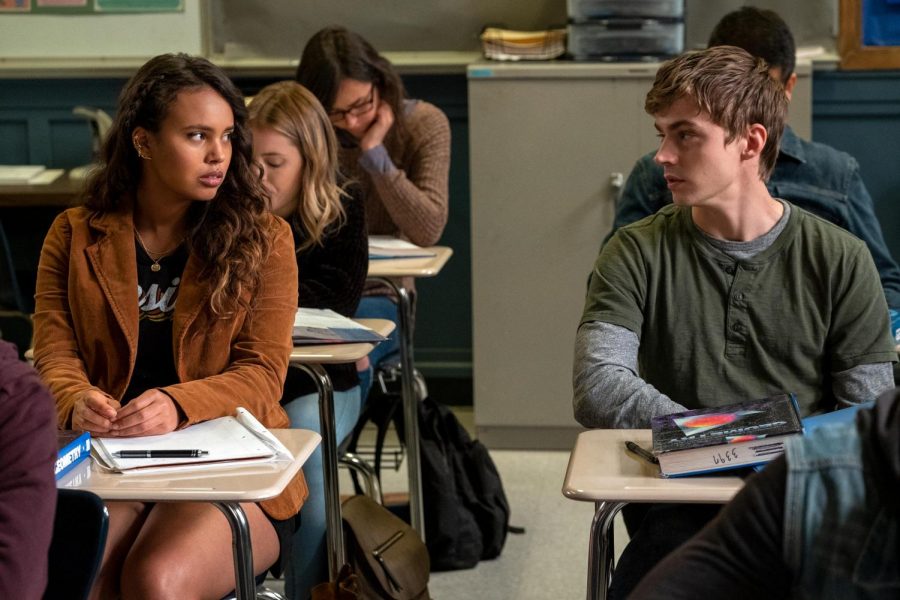REVIEW: Third season of ‘13 Reasons Why’ left me conflicted
Violence begets violence, but is it right to air?
August 29, 2019
The third and latest season of “13 Reasons Why” came out last Friday at midnight and I spent the entire next day analyzing every detail and scene. The progression of the show made me question how mental health is diagnosed and assessed.
Mental illness has been blamed for gun violence in America.
According to Arash Javanbakht, assistant professor at Wayne State University, “Only 3% to 4% of all the violent acts committed in a given year in the U.S. are committed by people who have been diagnosed with commonly cited mental illness of schizophrenia, bipolar disorder or depression.”
In the show, Tyler, a suicidal Liberty High rape survivor attempted a revenge-motivated school shooting at the homecoming dance that was eventually stopped by his classmates.
Story continues below video.
Sexual assault and suicide were the main themes of the previous two seasons. Who killed Bryce Walker was the latest scandal at Liberty High, the fictional high school where the show takes place. Walker was a high school senior who raped Hannah Baker (the show’s protagonist who killed herself following her sexual assault in season one) and several other female students at Liberty High.
A group of friends from Liberty High, the ones closest to Baker, felt it was their duty to band together and protect Tyler. Upon hearing the news of Walker’s death, everyone assumed it was Tyler who was responsible because he had access to guns and had attempted a school shooting prior.
Armed with this knowledge Clay Jensen, the show’s secondary protagonist, who confronted Tyler and decided to form a support group with his friends who agreed to take care of Tyler until he got better.
According to HelpGuide, “While emotional trauma is a normal response to a disturbing event, it becomes PTSD when your nervous system gets ‘stuck’ and you remain in psychological shock, unable to make sense of what happened or process your emotions.”
What happens when the person suffering can’t be saved by their loved ones who agreed to keep their “secret” from everyone? What if staying silent is no longer an option, and the chance to intervene passes us by?
From personal experience, I’ve learned that you can’t save everyone. I’ve witnessed friends try to save their loved ones, only to watch them spiral and blame themselves when they take their own lives or worse, others. When a person chooses to confide in you they need to be heard, not suffer in silence. I believe it’s our job to listen and above all speak up.
It’s those moments of silence, those kept secrets, that perpetuate the cycle and prevent the trauma from healing. It’s cycles of violence that keep us trapped in fear, for violence begets violence. It’s our duty as Americans to break the cycle.If you see something, say something.

























































































































